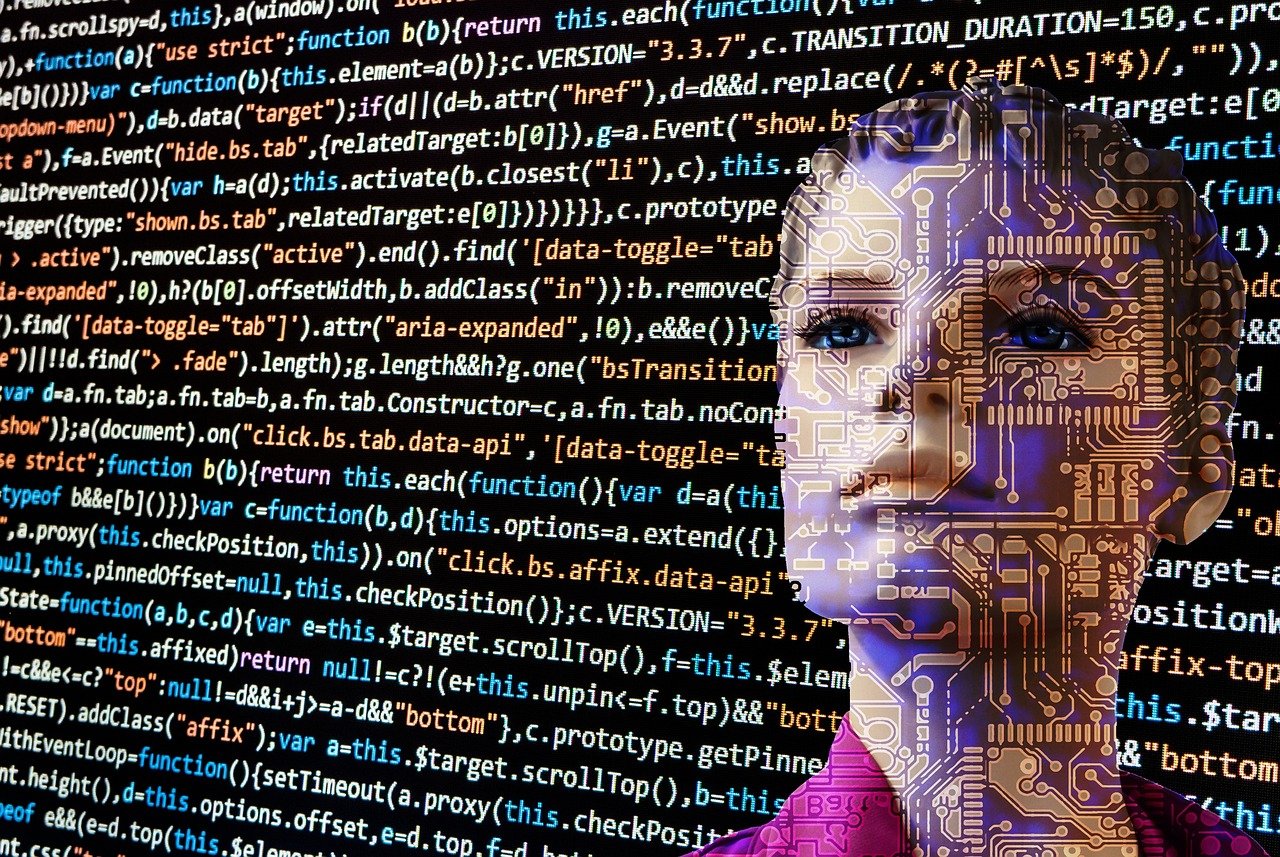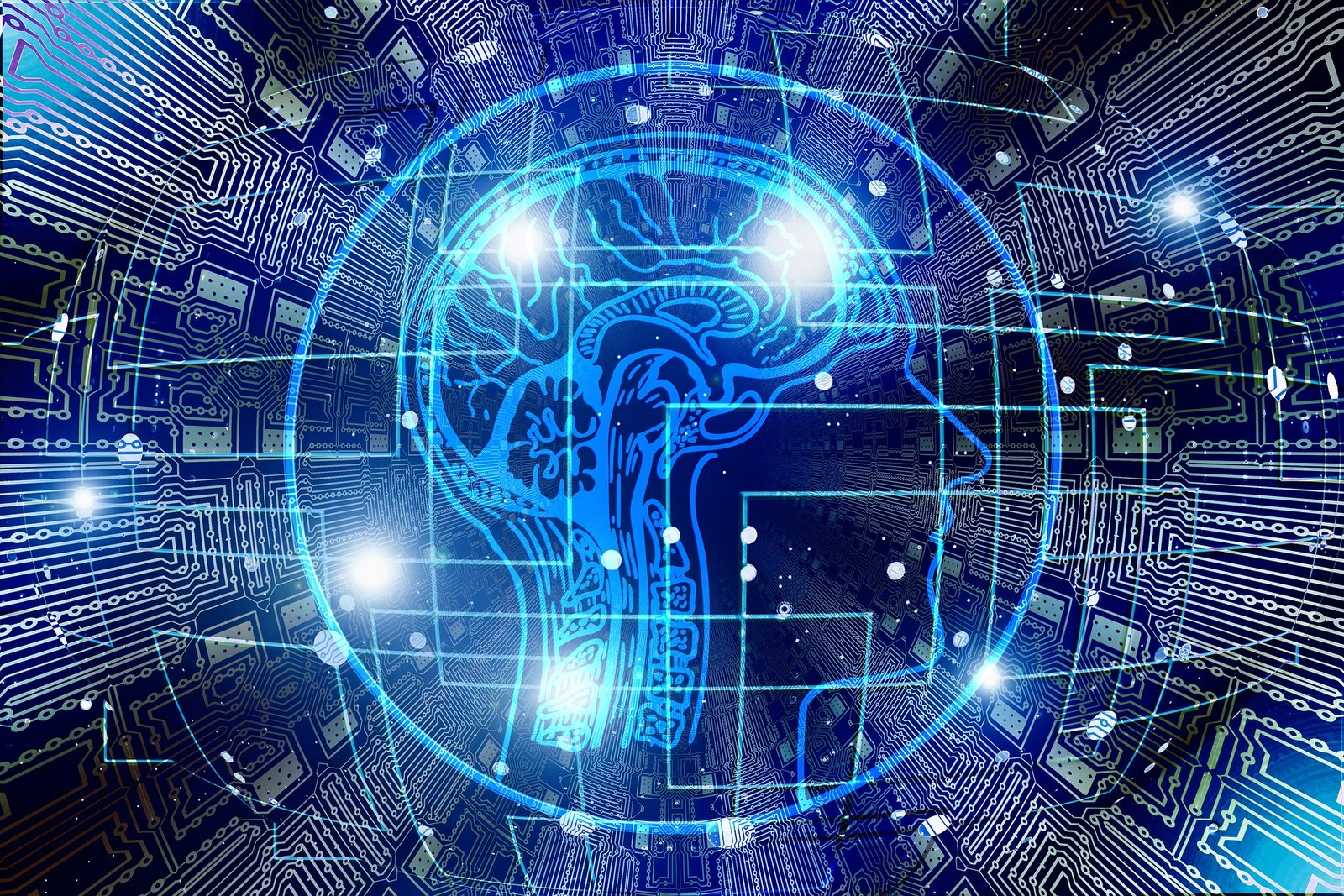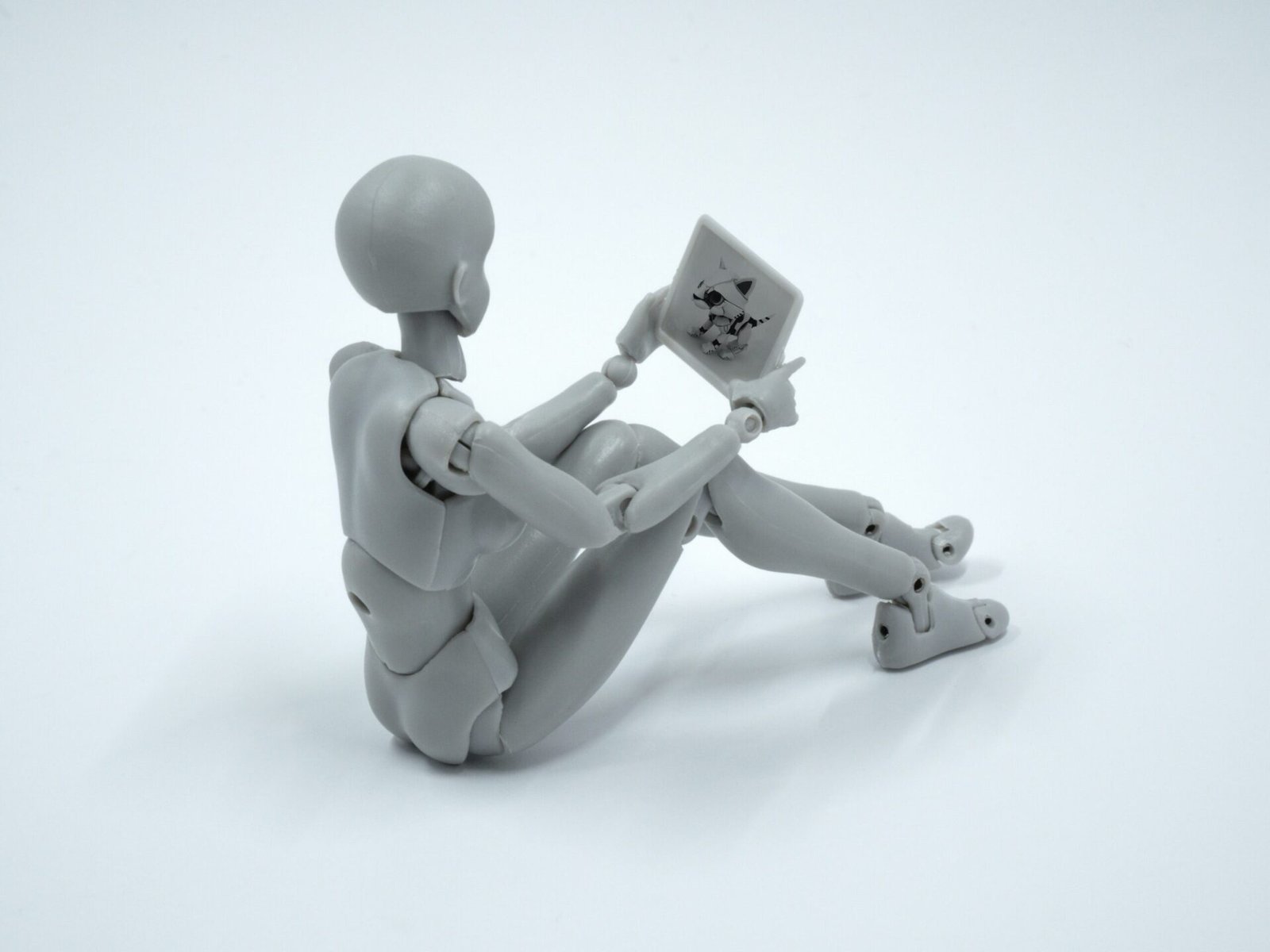Table of Contents
AI affect computer science careers
Today, it seems that artificial intelligence (AI) can do anything from content writing and computation to video making and identification of individuals quickly with a few clicks. AI also prevents software engineers, developers, programmers, and tech workers from wasting their time on repetitive tasks such as data entry, coding, and copying and pasting data from one page to another. Artificial intelligence (AI) can do all these tasks more effectively and with greater accuracy.

Is computer science one of the most threatened jobs due to AI?
The impact of artificial intelligence on computer science careers is complicated. While AI has the ability to automate certain operations quickly in the field, it also opens up new opportunities and new demands on qualified workers. Routine assignment’s, such as simple coding or data entry, may be automatically done by AI. while many tasks that require creativity, problem-solving, and strategic thinking are less likely to be replaced by AI.
Instead of being threatened, many experts believe that computer science professionals will need to adapt and evolve alongside AI technologies. This may involve upskilling to work with AI systems, developing expertise in areas where human judgment and creativity are crucial, and focusing on roles that involve designing, implementing, and overseeing AI systems.
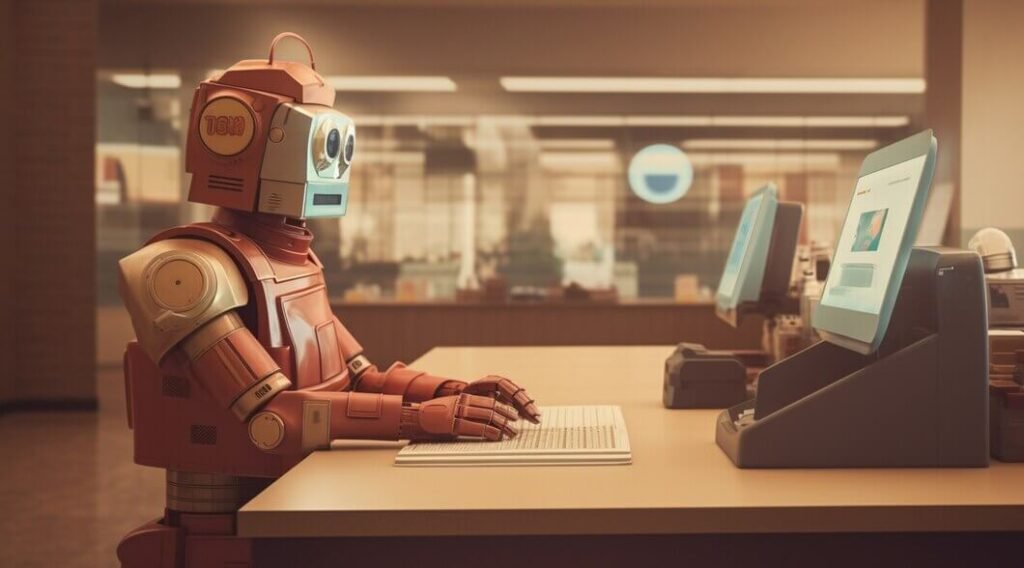
Machine Learning and AI Affecting Computer Science
The integration of AI and machine learning solutions into corporate systems marks a significant paradigm shift in contemporary business landscapes. This transformative wave brings with it both promises of efficiency and a host of challenges. One notable aspect of this transition is the partial comprehension or even ignorance of the underlying mechanisms among implementing organizations.
The advent of AI and machine learning introduces a new demand for talent. A forecast suggests that around 10% of IT hires in customer service will be tasked with crafting scripts for chatbots, merely scratching the surface of AI’s applications. While this is indicative of AI’s burgeoning importance, it also highlights a potential repercussion: the diversion of skilled professionals from other areas of computer science.
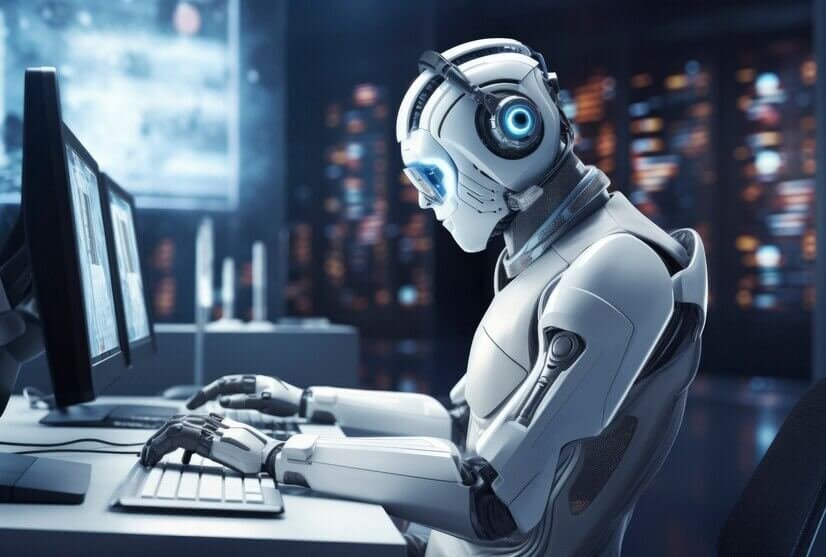
As talented computer scientists and engineers gravitate towards AI-centric roles, other avenues of research and development might be neglected. Projects with the potential to yield groundbreaking advancements in computer science could be overshadowed or sidelined. The danger here lies not only in stalling potential progress but also in limiting the diversity of innovation within the field.
While the widespread adoption of AI and machine learning undoubtedly promises numerous benefits, this trend underscores the importance of balanced technological advancement. As organizations embrace these technologies, they must also strive for a holistic understanding of their implications and actively foster innovation across various domains. Only then can they harness the full potential of AI while mitigating the risks of inadvertently stifling other avenues of progress.
Will AI affect jobs and the economy?
A Gateway to Global Economic Growth
According to a groundbreaking study, AI has the potential to inject an additional $13 trillion into the global economy in the foreseeable future. By 2030, this could translate to a staggering 16% increase in cumulative GDP compared to present levels. Such growth rates, averaging 1.2% annually, rival those witnessed during previous epochs of transformative technological advancement. Indeed, AI is poised to join the ranks of history’s most influential general-purpose technologies.
The driving force behind this economic surge lies in AI’s multifaceted capabilities. As AI technologies permeate diverse sectors, they catalyze two primary mechanisms of growth: automation and innovation. By substituting labor with automation, AI optimizes processes, reduces costs, and boosts productivity. Concurrently, it fosters fertile ground for innovation, catalyzing the creation of novel products, services, and business models.
However, the journey towards AI-driven prosperity is not without its hurdles. While the potential benefits are clear, widespread adoption remains a formidable challenge. Despite the optimistic projections, studies suggest that, by 2030, only 70% of companies will have embraced the AI revolution, with less than half fully absorbing its five core categories. This underscores the need for concerted efforts to bridge the adoption gap and maximize AI’s transformative potential.

Forbes aptly captures the magnitude of AI’s disruptive force, describing it as one of the most transformative technologies in human history. Indeed, the AI revolution promises to reshape global economies, redefine industries, and fundamentally alter the nature of work and human interaction. From autonomous vehicles to personalized healthcare, AI’s applications are limited only by our imagination.
As we stand on the precipice of this technological revolution, it is imperative that we approach AI with a blend of optimism and caution. While the economic rewards are tantalizing, we must also navigate ethical, societal, and regulatory considerations to ensure that AI serves the collective good. Moreover, we must prioritize inclusivity and equity to ensure that the benefits of AI are shared by all segments of society.
In conclusion, the advent of AI heralds a new era of economic growth, innovation, and transformation. By harnessing its potential, we can unlock unprecedented opportunities to address global challenges, drive sustainable development, and enrich the human experience. The AI revolution is not merely a technological phenomenon but a catalyst for a brighter, more prosperous future for all.
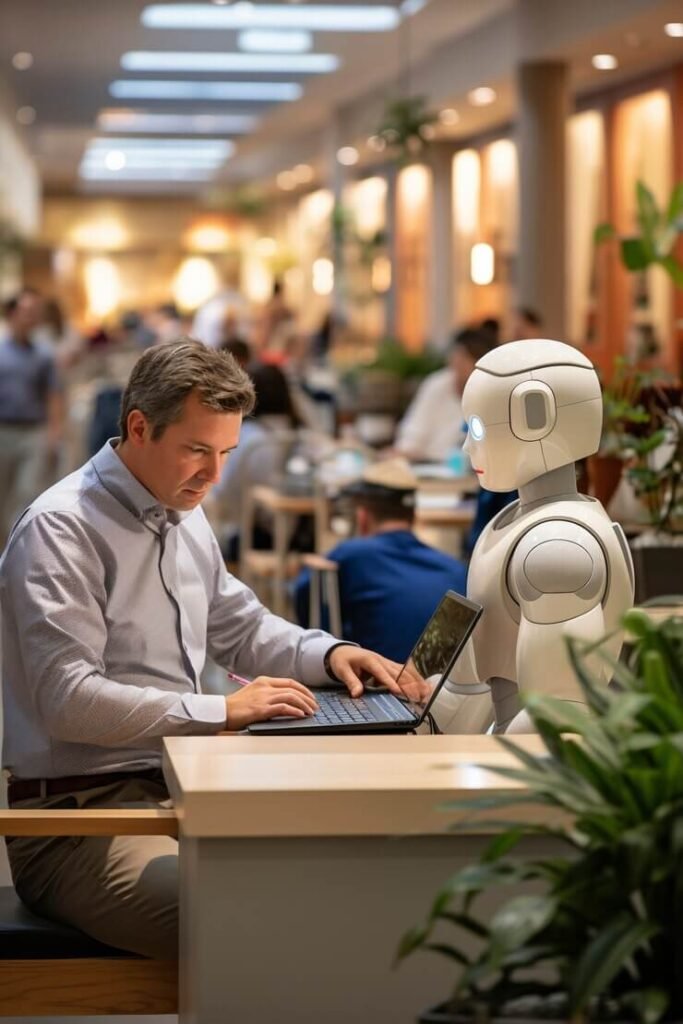
The Symbiotic Relationship Between Computer Science and Artificial Intelligence
In the ever-expanding realm of technology, few fields stand as interconnected and mutually reinforcing as computer science and artificial intelligence (AI). These two domains share a symbiotic relationship, each relying on the other’s principles and advancements to push the boundaries of innovation and possibility.
Computer science serves as the bedrock upon which the edifice of artificial intelligence is built. It provides the theoretical framework, methodologies, and practical tools necessary for the development and implementation of AI systems. From algorithms and data structures to programming languages and software engineering principles, computer science furnishes AI researchers and practitioners with the essential building blocks to bring their visions to life.

Artificial intelligence is a subfield of computer science dedicated to the creation of intelligent machines capable of emulating human-like cognitive functions. This encompasses a broad spectrum of tasks, ranging from natural language processing and computer vision to robotics and machine learning. AI algorithms and models leverage computational techniques to analyze, interpret, and derive insights from vast datasets, enabling machines to make informed decisions, solve complex problems, and even learn from experience.
Moreover, the interdisciplinary nature of AI underscores the importance of computer science as a facilitator of collaboration and innovation. AI researchers often draw upon principles from mathematics, statistics, neuroscience, and cognitive science to develop more robust and sophisticated algorithms. Likewise, advancements in computer science, such as parallel computing, distributed systems, and cloud computing, have empowered AI practitioners to tackle increasingly complex problems and scale their solutions to unprecedented levels.
In conclusion, the symbiotic relationship between computer science and artificial intelligence exemplifies the power of interdisciplinary collaboration and collective ingenuity. Together, these fields pave the way for a future where intelligent machines augment human capabilities, solve grand challenges, and unlock new frontiers of knowledge and possibility. As we embark on this journey of exploration and discovery, let us embrace the boundless opportunities that await at the intersection of computer science and AI.


